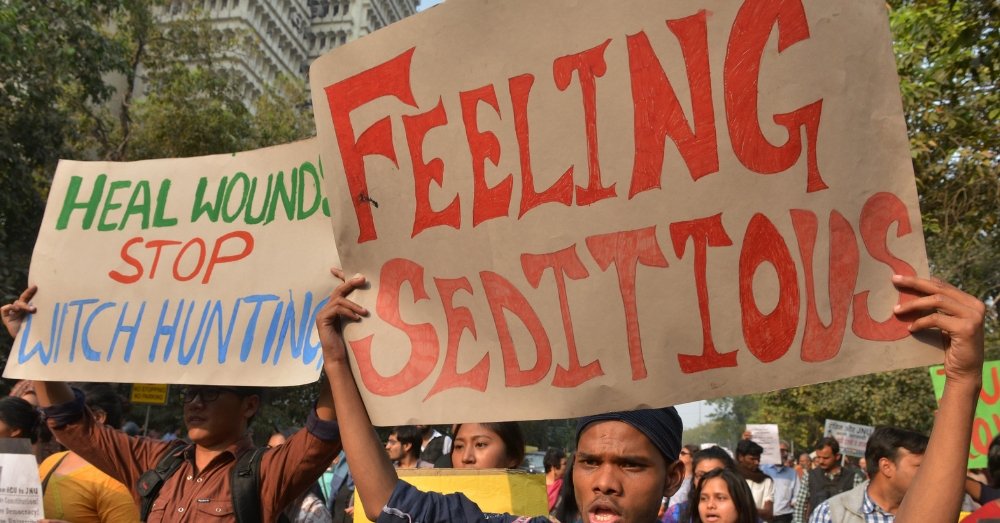It is no surprise, therefore, that the Narendra Modi-led government is resisting it too. Its plea to the Supreme Court to defer a hearing in the matter till it “re-examines and reconsiders” the law is nothing but an oblique expression of resistance.

New Delhi: It is unfortunate that no government took serious steps to end the sedition law, one that the colonial masters had enacted before India achieved freedom from the British rule, despite repeated demands from the civil society and the rights groups.
It is no surprise, therefore, that the Narendra Modi-led government is resisting it too. Its plea to the Supreme Court to defer a hearing in the matter till it “re-examines and reconsiders” the law is nothing but an oblique expression of resistance. The apex court must take the current petition on sedition law to its logical conclusion, of course giving due consideration to the government’s plea for time to review and re-look by a “competent forum”.
The sedition law (Section 124A of the penal code) deals sternly with anti-national activities like creating disaffection, hatred or contempt against the state. It was originally meant to suppress freedom fighters and others who opposed the British rule in the country and sought independence. More than seven decades after India became free, this law has little relevance. There are enough provisions under normal laws to punish those who seek to create trouble for the state. The United Kingdom itself removed the sedition law from its statute book long ago. Most other democratic nations followed suit thereafter. They saw the law as archaic and violative of the fundamental tenets of democracy like freedom of speech and expression. As the largest democracy in the world, the continuance of sedition law in India is an insult to its democratic credentials.
The issue has been debated long enough across governments and by political parties. While all governments of the day chose to keep quiet and silently allowed its continuance, they cried hoarse against the measure when in Opposition. This is because the measure suited the government eminently — it could create fear among people to comply obedience. The issue came up even during the Congress and the UPA regimes when the BJP and others had demanded repeal of all archaic laws, including the sedition law. Now, it is the turn of the BJP-led NDA government under Modi. Owing to attacks from various sections, the Modi government is under pressure to remove the law once and for all.
There is, of course, a big difference between then and now. The highest court of the land is now willing to review its own judgment of 1962 when a Constitution bench upheld the constitutional validity of the sedition law while dealing with the Kidar Nath Singh vs state of Bihar case. One can visualise the situation in the country more than four decades ago when the nascent republic was still facing a crisis. There is no comparison between the situation then and now. The Supreme Court’s bold move is only to be appreciated.
One only hopes that better sense will prevail in the Government, respecting the mood of the people and the judiciary. The review and re-look of the provision should result in removal of this law entirely, or drastically amended to prevent misuse. The review and re-look period must be fixed by the court so that it gives its verdict in the present case to reach a finality.

(Devsagar Singh is a senior journalist.)
